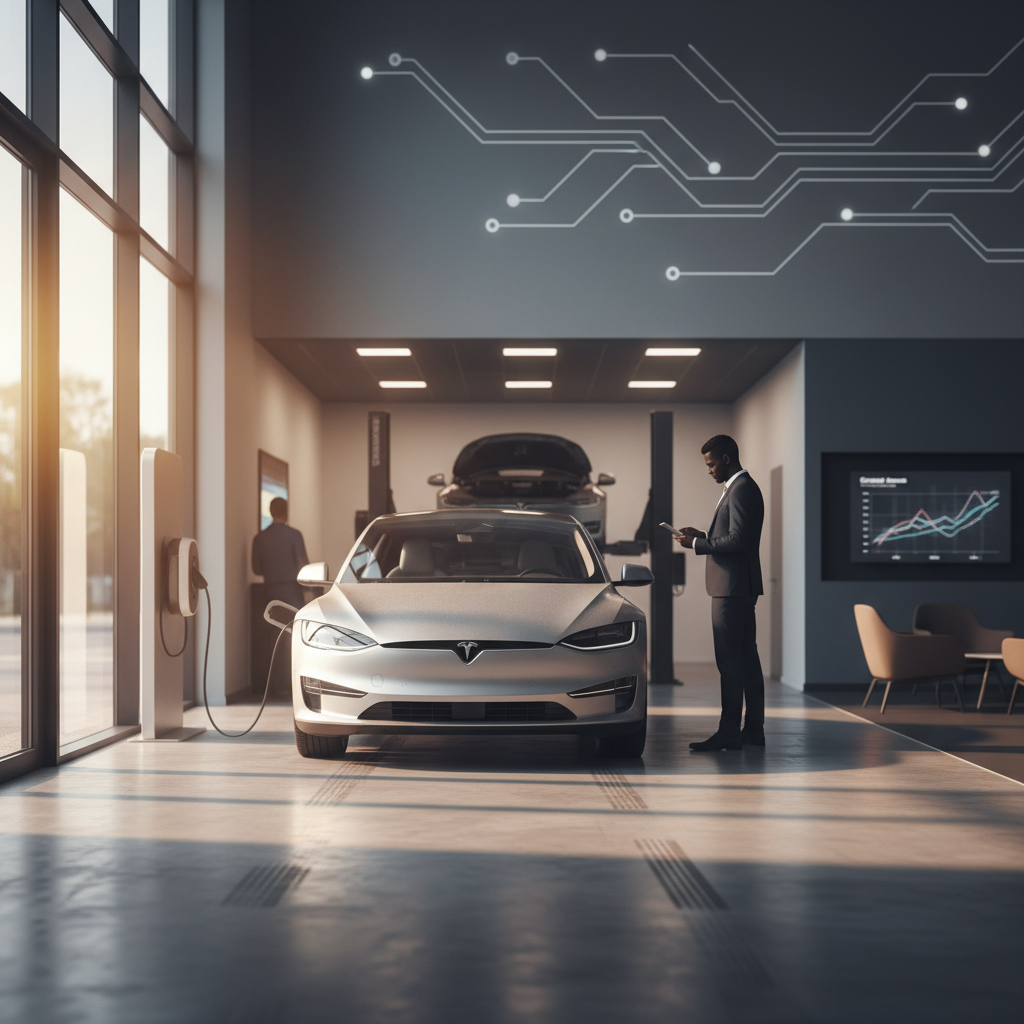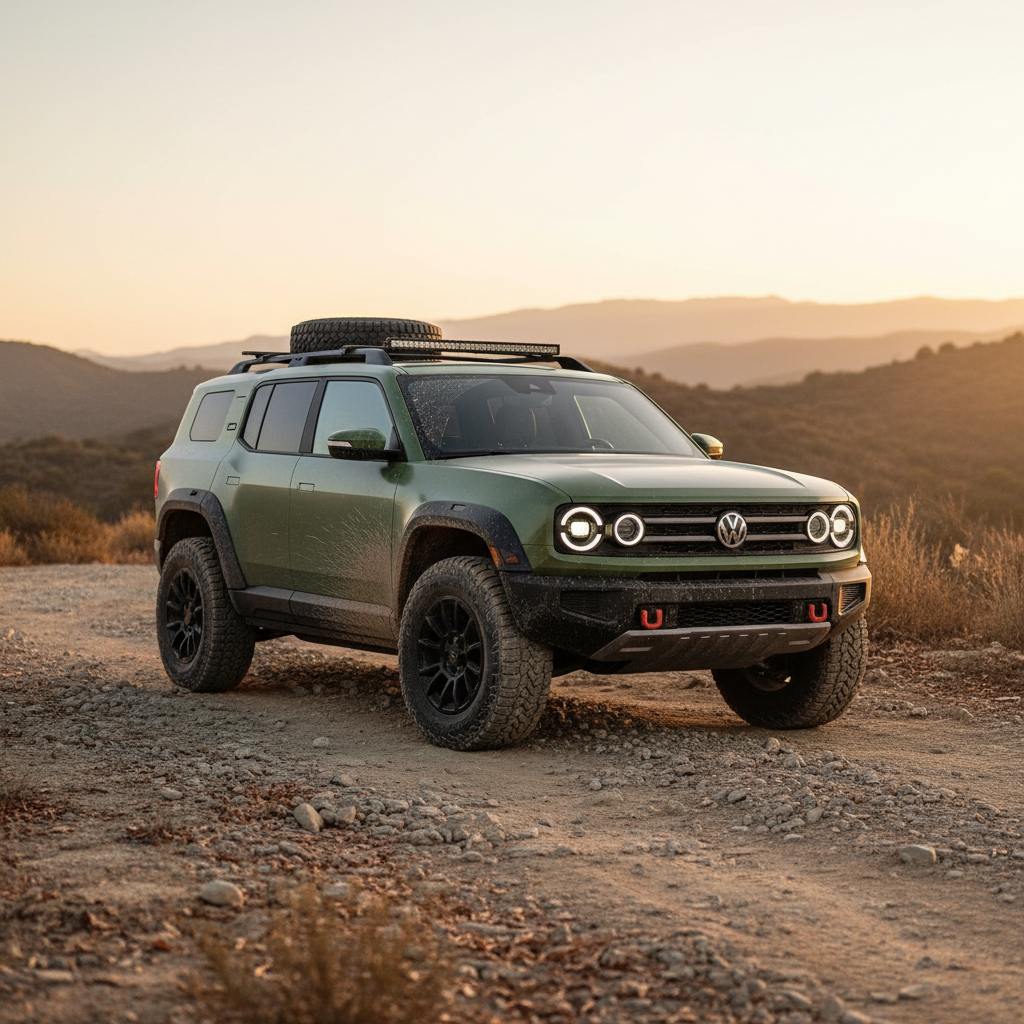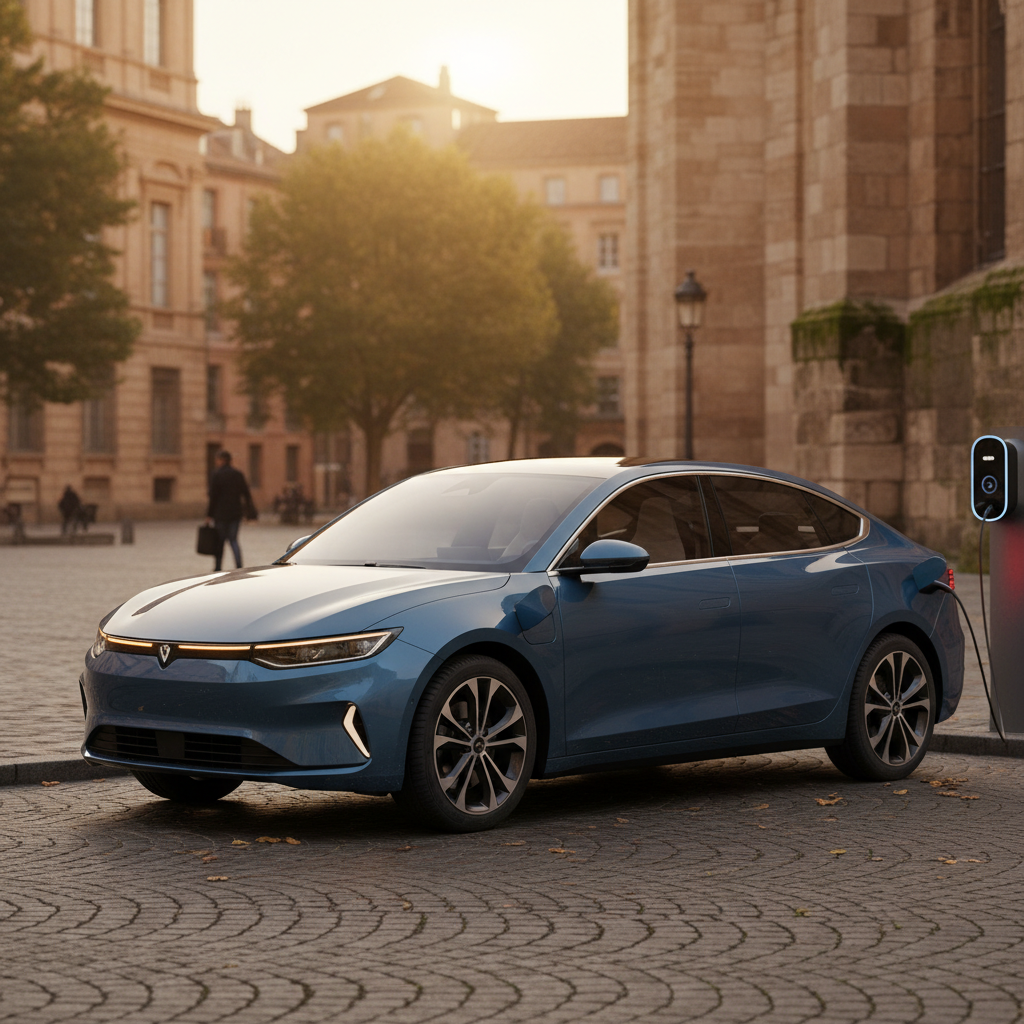If you want EV efficiency without a hulking three‑row SUV, a small electric SUV hits a sweet spot: easy to park, usable cargo space, and real-world range that works for commuting and weekends away. In 2025 the question isn’t “should I go electric?” so much as “what’s the best electric small SUV for how I actually live?” This guide walks you through stand‑out new and used options, plus what to look for before you sign anything.
Small SUV, big picture
Why small electric SUVs are booming in 2025
Automakers have finally realized that most drivers don’t need a 6,000‑pound SUV to get the kids to school or commute 30 miles. Compact EV crossovers like the Hyundai Kona Electric, Volkswagen ID.4, and Kia Niro EV offer SUV‑style ride height and cargo flexibility in a footprint closer to a hatchback. They’re easier to park, cheaper to insure, and generally more efficient than larger electric SUVs.
- Shorter wheelbases make them easier to maneuver in tight city streets and garages.
- Smaller, lighter bodies usually mean better efficiency and lower running costs.
- Two-row configurations still offer family‑friendly space without the bulk of a three‑row EV.
Think in miles, not segments
How we picked the best electric small SUVs
There’s no single “best” EV for everyone. To build this list we focused on models that balance price, range, practicality, and availability, especially on the used market, where value can be excellent. We also weighted vehicles that are easier to live with in U.S. cities and suburbs.
Our selection criteria
Real‑world range and efficiency
We looked for EPA‑rated range around 230–320 miles on newer models, and strong efficiency (miles per kWh) so you spend less on electricity.
Price and total cost of ownership
MSRPs are helpful, but we also considered used pricing, maintenance, insurance, and potential EV tax credits or state incentives.
Practical size and packaging
Models needed to offer usable rear seats and cargo space while still being easy to park in typical U.S. garages and street spots.
Charging speed and convenience
We prioritized vehicles with decent DC fast‑charging capability and, increasingly, native NACS (Tesla) ports or reliable adapter support.
Reliability and battery track record
We favored vehicles with strong reliability reputations and robust battery warranties, especially important on used EVs.
Quick look: top electric small SUV picks
Best electric small SUVs by buyer type
Use this to shortlist the models that actually fit your life.
Best overall
Hyundai Kona Electric (2024–2025)
Outstanding efficiency, tidy size, and approachable pricing put the Kona Electric at the top of the small‑SUV heap.
Best for space & road trips
Volkswagen ID.4 and Hyundai Ioniq 5
Roomier, still compact crossovers with comfortable highway manners and strong DC fast‑charging.
Best budget used picks
Chevrolet Bolt EUV and Kia Niro EV
Excellent value on the used market, with plenty of range for daily use and modest road‑trip needs.
Most efficient commuter
Hyundai Kona Electric
Recent tests have seen ~4.3 mi/kWh from the 64.8‑kWh battery, about as good as it gets in this class.
Best for city living
Chevy Bolt EUV and Kona Electric
Easy to thread through traffic and squeeze into curbside parking, without sacrificing hatchback versatility.
One to watch
Subaru Uncharted EV (2026, announced)
Subaru’s upcoming compact EV SUV promises ~300 miles of range and standard NACS fast‑charging capability in a small footprint.
Best overall: Hyundai Kona Electric

If you’re looking for the best all‑around electric small SUV right now, the Hyundai Kona Electric is the one to beat. The 2025 model’s SEL and Limited trims deliver an EPA‑estimated up to 261 miles of range on a full charge, with DC fast‑charging that can take the battery from 10% to 80% in as little as roughly 43 minutes on a compatible 400‑V charger.
Hyundai Kona Electric at a glance
On the road, the Kona Electric feels more like a well‑sorted hatchback than an SUV. Steering is light but accurate, ride quality is comfortable, and the 201‑hp front motor in the larger‑battery trims has enough punch for confident highway merges. Inside, you get a modern dual‑screen layout, simple controls, and a sensible mix of physical buttons and touch controls, plus a real volume knob, which you’ll appreciate on rough pavement.
Where the Kona Electric shines
- Efficiency king: Few small SUVs go as far on each kWh, which lowers your charging costs.
- Manageable size: At just over 171 inches long, it’s easy to park yet still has a useful cargo area with the rear seats up or folded.
- Strong warranty coverage: Hyundai’s 10‑year/100,000‑mile battery warranty is a big plus, especially if you’re considering a future used purchase.
- Value story: Pricing is competitive when new, and early‑generation Kona Electrics are starting to look very attractive on the used market.
Where you might compromise
- Rear seat space: Adults fit, but it’s not as generous as larger compact SUVs like a VW ID.4.
- Interior materials: Practical and durable, but you’ll find more soft‑touch surfaces in some pricier rivals.
- Front‑wheel drive only: If you want all‑wheel drive for snowy climates or dirt roads, you’ll need to look at alternatives.
Kona Electric availability check
Best for space: VW ID.4 and Hyundai Ioniq 5
If you like the efficiency and tech of a small electric SUV but want more rear‑seat room and cargo volume, step up slightly in size to the Volkswagen ID.4 or Hyundai Ioniq 5. They’re still compact by traditional SUV standards, but both feel noticeably roomier than subcompact models like the Kona or Bolt EUV.
Two roomy "small" electric SUVs
Bigger on the inside, still easy to live with.
Volkswagen ID.4
The ID.4 is a compact electric SUV with a calm driving demeanor and spacious second row. Depending on year and trim, you’ll typically see EPA ranges in the 250–290‑mile ballpark, with rear‑wheel‑drive models stretching a bit further than dual‑motor versions.
It’s a strong choice if you prioritize comfort and cargo flexibility over sharp handling.
Hyundai Ioniq 5
More of an electric hatchback‑meets‑crossover, the Ioniq 5 still qualifies as a compact SUV in most shoppers’ minds. It offers up to the low‑300‑mile range on certain trims, ultra‑fast 800‑V DC charging, and a lounge‑like cabin with a nearly flat floor.
If you road‑trip often, the Ioniq 5’s charging performance is a real advantage.
Size vs. parking reality
Upcoming small EV SUV to watch: Subaru Uncharted EV
If you can wait until early 2026, Subaru’s announced Uncharted EV looks like it will land right in the middle of the electric small SUV sweet spot. Developed with Toyota and roughly the size of a C‑HR, it’s Subaru’s first truly compact electric SUV and the brand’s first front‑wheel‑drive vehicle in decades, aimed squarely at affordability and efficiency.
Subaru is targeting roughly 300 miles of range for the single‑motor front‑drive version from a 75‑kWh battery, with dual‑motor all‑wheel‑drive trims expected to offer around 290 miles. A NACS charging port for access to Tesla Superchargers and DC fast‑charging up to about 150 kW are baked in from the start, which should make road‑tripping fairly painless.
Why this matters if you’re shopping now
Best budget picks: used Chevy Bolt EUV & Kia Niro EV
If your primary goal is getting into a practical EV without overspending, two of the best values today aren’t brand‑new at all: the Chevrolet Bolt EUV and the Kia Niro EV. Both are on the small side of the SUV spectrum, both are efficient, and both can be excellent buys as used vehicles.
Chevy Bolt EUV
- Range: Around the mid‑200‑mile range for most trims, more than enough for daily commuting and errands.
- Footprint: Easy to park and maneuver, but with a slightly taller seating position than the standard Bolt.
- Price story: Because production ended earlier in the decade, used pricing is often very attractive, especially compared with new EVs.
Kia Niro EV
- Range: Depending on model year, you’ll typically see around 240–260 miles of EPA range.
- Packaging: Conventional small‑SUV shape with a very usable cargo area and good visibility.
- Warranty: Like Hyundai, Kia’s long battery warranty is a plus if you’re buying a relatively young used example.
Used doesn’t mean risky
Comparison table: key specs for top small EV SUVs
Key numbers for popular electric small SUVs
Approximate specs for typical recent model years. Always verify exact figures for the specific vehicle you’re considering.
| Model | Class/Size | Typical EPA Range (mi) | Battery (kWh) | Drive | Fast‑Charge Peak (approx.) |
|---|---|---|---|---|---|
| Hyundai Kona Electric | Subcompact SUV | up to ~261 | 64.8 | FWD | up to ~100 kW |
| VW ID.4 (RWD) | Compact SUV | around mid‑250s to high‑200s | ~77 | RWD/AWD | up to ~175 kW |
| Hyundai Ioniq 5 | Compact CUV | roughly 260–320 | ~77 | RWD/AWD | up to ~235 kW |
| Chevy Bolt EUV | Subcompact CUV | around mid‑200s | ~65 | FWD | up to ~55 kW |
| Kia Niro EV | Subcompact/compact CUV | roughly 240–260 | ~64 | FWD | around ~85 kW |
| Subaru Uncharted EV* | Compact SUV | targeting ~290–300 | 75 | FWD/AWD | up to ~150 kW |
Range and charging numbers are rounded; trim and wheel choices can change them slightly.
About those asterisks
How to choose the right electric small SUV for you
Once you’ve narrowed the list to a few contenders, the trick is matching the SUV to how you actually drive. That’s where shoppers often overbuy, paying for range and size they don’t need, or overlooking charging realities in their area.
5 questions to dial in the right small EV SUV
1. How many miles do you really drive per day?
Most U.S. drivers average under 40 miles a day. If that’s you, any modern electric small SUV with 220+ miles of range is more than enough for daily use.
2. Where will you charge most of the time?
If you have a driveway or garage, a Level 2 home charger makes ownership dramatically easier. Apartment dwellers should prioritize models with faster DC charging and good public‑charging coverage nearby.
3. Do you need all‑wheel drive?
AWD can help in harsh winters or on unpaved roads, but it usually reduces range and adds cost. For many drivers, good all‑season tires on FWD are plenty.
4. How often do you road‑trip?
If you frequently drive 200+ miles in a day, look closely at highway range, DC fast‑charging speeds, and access to reliable networks like Tesla’s Supercharger system.
5. How much space do you really use?
Before defaulting to something bigger, look at your current cargo usage. Many families discover a small electric SUV handles 90% of their real‑world needs just fine.
Buying used: from range to battery health
The used market is where small electric SUVs get especially interesting. Early Kona Electrics, Kia Niro EVs, and Chevy Bolt EUVs are all showing up at significant discounts versus new, often with plenty of battery warranty left. But you need more than just a Carfax and a quick test drive to know what you’re getting.
Biggest used‑EV mistake
Key checks for a used electric small SUV
- Battery health: Ask for a recent battery‑health scan or report. You want objective data, not just “it seems fine.”
- Fast‑charging behavior: If possible, observe a DC fast‑charge session. Does the car reach expected speeds, or does it taper early?
- Service history: Look for regular maintenance and software updates, especially on early EVs that have had recalls or firmware improvements.
- Warranty coverage: Confirm how much of the original battery and powertrain warranty remains, and whether it transfers to you.
How Recharged’s Score Report helps
Every EV sold through Recharged includes a Recharged Score Report that goes beyond standard vehicle history:
- Verified battery health diagnostics, not just mileage.
- Fair market pricing based on real‑world transactions, not guesses.
- A summary of charging behavior and patterns when data is available.
- EV‑specialist guidance so you understand what the numbers actually mean.
How Recharged helps you buy the right EV
Shopping for the best electric small SUV can feel like juggling range charts, tax‑credit rules, and dealer games, all at once. Recharged exists to simplify that process. Instead of bouncing between listings that tell you very little about the battery (the most expensive component in an EV), you get clear, comparable information on each vehicle plus expert help if you want it.
- Browse a curated selection of used electric SUVs with transparent pricing and Recharged Score battery reports.
- Get financing options and even pre‑qualification without impacting your credit, so you know your budget up front.
- Trade in your current vehicle or get an instant offer, with the option for consignment if you want to maximize value.
- Complete the entire purchase digitally, with nationwide delivery available, or visit the Recharged Experience Center in Richmond, VA if you prefer an in‑person walk‑through.
Make the numbers work for you
Electric small SUV FAQ
Frequently asked questions about electric small SUVs
Bottom line: the best electric small SUV for 2025
There’s no single "perfect" electric small SUV, but there are a handful of stand‑out choices. If you want maximum efficiency and city‑friendly size, the Hyundai Kona Electric should be at the top of your list. If you’d trade some efficiency for more space, step up to a VW ID.4 or Hyundai Ioniq 5. Value hunters should take a hard look at used Chevy Bolt EUV and Kia Niro EV examples with solid battery health.
The key is matching the vehicle’s range, size, and charging capabilities to your daily routine and occasional road‑trip ambitions. When you’re ready to shop, using detailed battery health data, transparent pricing, and EV‑savvy support, like what you get with every purchase at Recharged, can turn a confusing decision into a confident one.



